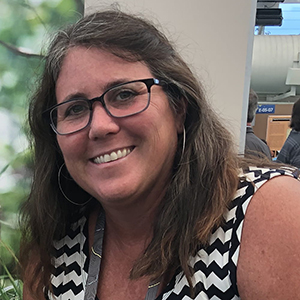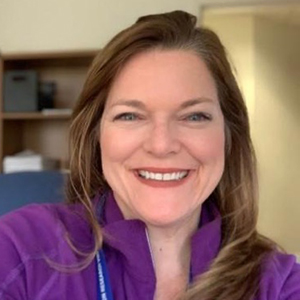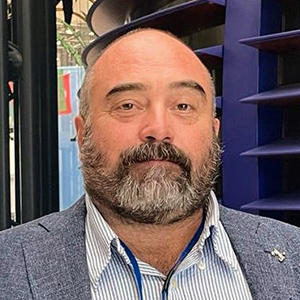Open Science 101 Workshop
Students are invited to attend the NASA-led open science workshop at the 2024 NC Space Symposium.
Open Science is the principle and practice of making research products and processes available to all, while respecting diverse cultures, maintaining security and privacy, and fostering collaborations, reproducibility, and equity. In this workshop, participants will explore Open Science, the current landscape, as well as the benefits and challenges. Learners will gain insights into the practices of open science through case studies.
Workshop Facilitators
Cynthia Hall
Support Scientist for Early Career Research Program, NASA Earth Sciences Division

Cynthia Hall is currently a support scientist within NASA’s Earth Science Division at NASA Headquarters in Washington, DC. She works within the Early Career Research Program in Earth Science to empower those early in their professional careers to develop solutions to benefit society, respond to changes in the Earth’s system, and to support Earth Science to Action. In addition to being an Earth scientist, specializing in remote sensing, she also has expertise in science and math education. This unique combination allows her to engage with diverse communities, conducting outreach and bridging the gap between science and non-science audiences. In addition, Cynthia specializes in developing resources for increased inclusivity and accessibility, for communities including data users from scientists to educators to decision makers, all with a varied range of needs.
Elizabeth Joyner
Community Coordinator, NASA Earth Science Data Systems Communications, Science Systems and Applications, Inc.

Elizabeth Joyner serves on the Earth Science Data Systems (ESDS) Program Communications Team as the Community Coordinator and works across the program to promote the use of NASA data and resources with end users. She previously served as the Senior Outreach Coordinator for NASA Langley Research Center’s Science Directorate as the Task Lead for the My NASA Data project. Elizabeth is a seasoned science outreach specialist and brings more than 25 years of experience working with government agencies, non-profits, and education institutions. Elizabeth taught for over 10 years in both public and private school, as well as worked in informal settings such as Virginia Space Grant Consortium, SC Space Grant, SC Sea Grant Consortium, NOAA/NSF’s Center for Ocean Sciences Education Excellence, and the American Geosciences Institute.
Nathan Morrow
Associate Professor in International Health and Sustainable Development, Tulane University

Dr. Morrow regularly collaborates with both international and community-based organizations to support research, learning, evidence-based policy, and organizational development. His research leverages geospatial tools in community-engaged open science with policy relevance to environmental justice, human and planetary well-being, and food system resilience. Before supporting community-led research following hurricane Katrina and the Deepwater Horizon disaster along the Gulf Coast, Dr. Morrow led large international initiatives serving as Chief of Party for a 400 million USD humanitarian aid response to an El Niño drought crisis in southern Africa. As American Evaluation Association Emergency and Disaster chair, Dr. Morrow promoted inclusive engagement and rigorous measurement for resilience research and intervention planning. Geospatial analysis by Dr. Morrow informed environmental security aspects of the Global Environment Facility (GEF-7) replenishment strategy. Working with United Nations agencies, he has conducted numerous technical reviews including Sustainable Development Goal target indicator 2.2.1. He led applied research, assessments or evaluations in Angola, Bangladesh, Cape Verde, Chad, Cote d’Ivoire, Dominican Republic, DRC, Egypt, Ethiopia, Haiti, Italy, Lesotho, Mali, Mozambique, Niger, Senegal, Somalia, South Africa, Sri Lanka, Sudan, Zambia, and Zimbabwe. Currently, he is PI for a NASA-funded open science capacity development project to advance environmental justice networks in coastal communities.